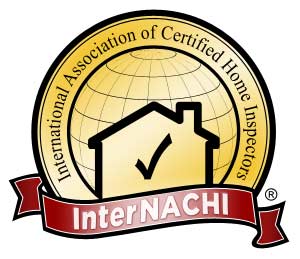BCAM® infrared camera
One of the latest tools Mold Inspectors can use to detect mold "hot spots" in places that cannot be seen easily is the BCAM® infrared camera.
This kind of equipment and technology offers the mold inspector a non-invasive means of monitoring and diagnosing the conditions of buildings - providing immediate high-resolution thermal imagery, revealing potential structural and moisture issues, energy efficiency and even rodent or pest discovery.
The BCAM® infrared camera features an automatic color alarm alerts yout to moisture-laden areas during building scans which can detect potential areas of mold growth, as well as verify when structures are moisture-free during the drying out process.
With the BCAM the Mold Inspector can inspect places that can't be physically reached with moisture meters. The BCAM reveals wet conditions behind surfaces such as: enameled walls and wallpaper that don't readily water stain, track leaks to their source, monitor the drying process, and confirm when a structure is dry.
Indoor Air Quality (IAQ) deals with the content of interior air that could affect health and comfort of building occupants. The IAQ may be compromised by microbial contaminants (mold, bacteria), chemicals(such as carbon monoxide,radon}, allergens, or any mass or energy stressor that can induce health effects.
Often it is perceived that outdoor air is polluted, but indoor air is acceptable. Scientific studies illustrate the falsity of this perception, and, in fact, indoor air is often a greater health hazard than the corresponding outdoor setting.
The Mold Investigation
Initial Mold Consultation
Clients disclose why they would like a mold inspection. Usually they have seen mold, smell a musty odor, feel a high humidity in the home or have become ill at home or a combination of these.
Visual Mold Inspection
Looking for visual mold, water stains, moisture intrusion, checking carbon dioxide levels and humidity levels as well as temperature.
Checking suspect areas with a surface moisture meter and / or thermal imaging camera to detect further moisture in wall cavities.
Mold Sampling
The visual inspection and consultation will indicate which rooms need to be air sampled along with an outdoor control sample.
If a surface area has suspected mold that is visual, then a swab or a physical sample can be taken, to confirm the type of mold.
The lab results are interpreted and recommendations can be made.
Recommendations can be made free of charge by the mold inspector.
The lab results are legal documents and have individual identification numbers on them.
Recommendations and Removal
Any recommendations be done by a Certified Mold Inspector or Remediator. We have a Microbiologist PHD. on staff, He is available for advice, protocols, etc. (for a nominal fee)
Mold removal can be more dangerous than having dormant mold in a home.
Negative air pressure machines, hepa filters, gloves and masks should be used.
Final Mold Air Sampling
Mold Air samples of the same rooms should be done after all moldy surfaces are cleaned or removed.
Final mold air sampling will show mold levels decreased to an acceptable level in these rooms.
Lab results from final mold air sampling is the proof you need to be assured that the infesting mold has been removed properly and completely.
Call Today for a Mold Inspection, we serve the entire Boston area including: Salem Melrose Saugus Arlington Medford Revere Wilmington Quincy Winthrop Peabody Beverly Stoneham Watertown Waltham Framingham Billerica Tewksbury Reading Methuen Haverhill Amesbury Salisbury Braintree Weymouth Marlborough Southborough Cambridge Malden Somerville Woburn Newbury Rowley West Newbury Swampscott Marblehead Rockport Nahant Westford Chelmsford Wakefield Sudbury Littleton Boxford Hingham Cohasset Scituate Norwell Marshfield Rockland Avon Stoughton Canton Sharon Foxboro Walpole Medfield Groveland Newburyport Lynnfield Lexington Winchester Wellesley Wayland Newton Needham Manchester by the Sea Hamilton Whenham Ipswitch Essex Topsfield Danvers Middleton North Andover Andover Carlisle Acton Concord Maynard Lincoln Burlington Brockton
Fall River New Bedford Lynn Worcester Lowell Lawrence Chelsea Worcester and any surrounding areas.





